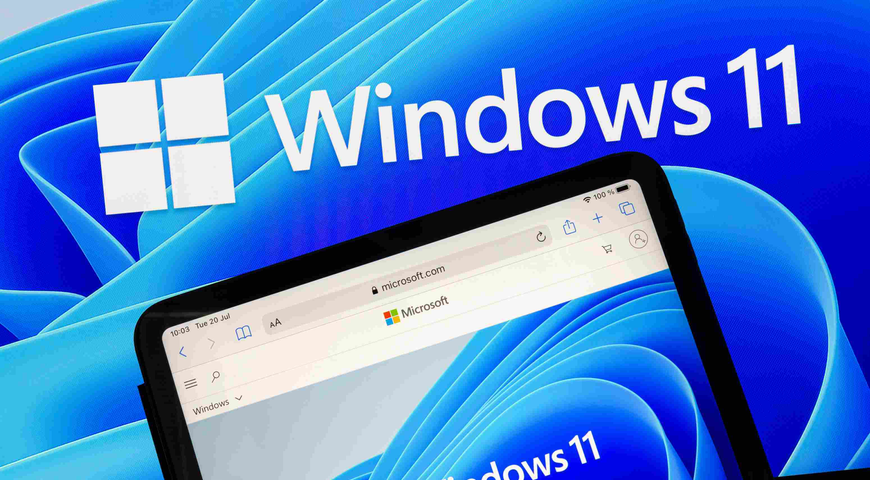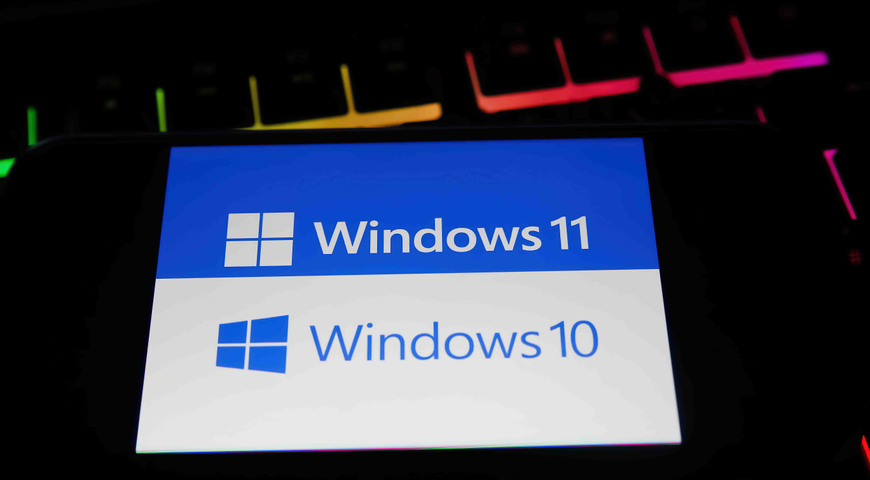Las soluciones de nube son increíblemente valiosas hoy en día porque permiten a las pequeñas y medianas empresas con una infraestructura y personal limitados acceder a herramientas asequibles que les ayudan a hacer negocios y crecer. Si usted es propietario de una pequeña empresa y está considerando una transición a la nube y/o cómo las soluciones en la nube para pymes podrían beneficiar a la suya, es útil comenzar con una comprensión de lo que es la nube. Si usted es un proveedor de servicios gestionados (MSP) que desea ofrecer soluciones en la nube para pequeñas empresas, es importante saber dónde puede añadir el mayor valor.
Comencemos por el principio con un poco de computación y conocimiento de la nube. Podemos considerar qué soluciones en la nube para pymes son populares, y el papel que puede desempeñar un proveedor de servicios gestionados de TI (MSP) para gestionar soluciones en la nube para pymes.
Computación en la nuble o cloud computing
Si se mira hacia atrás en el tiempo a la informática antes que existiese internet, las empresas confiaban en el hardware y el software para ejecutar las aplicaciones empresariales. Era complejo y costoso y requería que departamentos enteros gestionaran todo, desde la instalación y la configuración hasta la ejecución y la seguridad de las aplicaciones. Las actualizaciones y las pruebas fueron dolores de cabeza adicionales. Empresas de todos los tamaños lucharon por construir y mantener aplicaciones de línea de base, por no decir de impulsar las nuevas, y las pequeñas empresas se esforzaron en general.

Avancemos hasta el día de hoy: La computación en la nube significa que usted no tiene que almacenar sus propios datos. Los datos se almacenan y son accesibles a través de una red. La nube en sí misma es una ubicación física altamente segura, un centro de datos, ubicado fuera de sus instalaciones, que es el hogar de un sinnúmero de servidores en red. Al aprovechar el apoyo de un proveedor, puede subcontratar estos recursos de hardware y software, todo lo que necesita es una conexión a Internet para acceder y utilizar las herramientas clave. Los usuarios simplemente abren su navegador web favorito, inician sesión en la aplicación deseada, la personalizan (si es necesario) y se ponen a trabajar.
Las soluciones en la nube para pymes son diferentes a las que se ofrecen a particulares o a grandes empresas
La computación en la nube tiene naturalmente implicaciones diferentes para las pymes que para los individuos o las grandes empresas. Esto se debe a que las necesidades del usuario objetivo varían, desde la infraestructura real requerida hasta las soluciones de nube necesarias.
Como resultado, hay tres opciones principales de computación en la nube disponibles para acomodar diferentes necesidades: infraestructura como servicio (IaaS), plataforma como servicio (PaaS) y software como servicio (SaaS). Si se piensa en modelos de servicios en la nube como una pirámide, IaaS se sitúa en la base porque permite una infraestructura crítica. PaaS es el nivel siguiente o medio, permitiendo a los desarrolladores crear aplicaciones basadas en la infraestructura disponible. El SaaS se encuentra en la cima, ofreciendo en última instancia software a los usuarios finales. Las soluciones SaaS pueden considerarse como soluciones completas. Las soluciones en la nube para pymes suelen ser soluciones SaaS.
Ejemplos comunes de soluciones SaaS en la nube para pymes
Mientras que cualquier servicio o producto entregado a través de internet se considera una solución en la nube, las soluciones en la nube para pymes se centran en el SaaS, o en dar a las empresas acceso a software y a servicios ya preparados. Las soluciones en la nube más populares para pequeñas empresas incluyen Google Workspace apps, Microsoft 365 apps, Dropbox, Hootsuite, Shopify, MailChimp, Squarespace y otros. Por supuesto, las soluciones en la nube para pymes van más allá de estos ejemplos familiares, que ayudan a aumentar la productividad o permiten el marketing y las ventas.
Por ejemplo, las soluciones en la nube para pymes de copia de seguridad son de importancia crítica, al igual que tener una de las mejores soluciones en la nube para pymes de almacenamiento. Esto se debe a que, independientemente de su tamaño, las empresas de hoy en día deben hacer frente a cantidades de datos que crecen exponencialmente, es fundamental para llevar a cabo sus actividades y obtener beneficios. Proteger esos datos con soluciones en la nube para pymes avanzadas es una necesidad.
Administración de soluciones en la nube para pymes
La belleza de la nube es que muchos servicios empresariales esenciales, como los que se han comentado anteriormente, están fácilmente disponibles y requieren una gestión mínima. Con muchos proveedores de TI que ofrecen hoy en día una licencia de suscripción, las pequeñas empresas pueden "alquilar" soluciones en la nube y obtener actualizaciones de rutina (mejoras de software) incluidas a un precio bajo y regular (por ejemplo, mensual o anual). Este enfoque es particularmente beneficioso cuando se trata de herramientas de marketing y ventas basadas en la nube, que se crean pensando en los inexpertos.
Dicho esto, hay casos importantes en los que las soluciones en la nube para pymes pueden requerir ayuda adicional para habilitarlas y/o gestionarlas. A menudo tienen un elemento informático. Considere estos ejemplos:
- Las soluciones seguras de copia de seguridad en la nube para pequeñas empresas son vitales y, sin embargo, hay mucha confusión sobre lo que constituye la copia de seguridad en la nube. Por ejemplo, Dropbox, Google Drive y herramientas similares a menudo son malinterpretadas como soluciones de copia de seguridad en la nube para pequeñas empresas. Tenga en cuenta que, si bien estas soluciones ofrecen capacidades de sincronización y compartición de archivos, no ofrecen copias de seguridad. Consejo profesional: La protección de datos tradicional significa que dispone de funciones de copia de seguridad y recuperación que le permiten restaurar todo lo que necesita para retomar el trabajo donde lo dejó, antes de que ocurriera un desastre de datos. Es posible que se necesite un proveedor de servicios gestionados de TI (MSP) para ayudar a identificar y administrar la solución de copia de seguridad en la nube adecuada para su empresa.
- La migración de TI desde el hardware local a las soluciones en la nube puede llevar mucho tiempo y a menudo es un proceso de varios pasos, que requiere la ejecución de un plan para evitar interrupciones o tiempos de inactividad. Ahí es donde entra en juego un proveedor de servicios gestionados de TI o un proveedor de servicios con experiencia en migración en la nube.
- La integración de sistemas de TI complejos es importante para todas las empresas, dado el panorama de TI diverso y en constante evolución: los datos y los servicios pueden ser distintos, pero para que una empresa funcione sin problemas, cada elemento debe funcionar de forma coherente. Las pequeñas empresas a menudo se enfrentan al reto de comprender y gestionar esta complejidad, pero un MSP puede ayudarle a aprovechar ciertas herramientas de integración de datos basadas en la nube.
Los MSPs pueden ayudar a ofrecer soluciones en la nube para pymes esenciales
Como se ha comentado anteriormente, las pequeñas empresas pueden acceder fácilmente a muchas soluciones gracias a la nube, pero el cambio a la nube no siempre es fácil, y los servicios de TI clave (como las copias de seguridad en la nube para pequeñas empresas) no deben pasarse por alto. Los proveedores de servicios gestionados pueden ofrecer soluciones en la nube para pequeñas empresas que no sólo ayudan a las empresas a avanzar hacia el futuro, sino que también las ayudan a mantenerse en el negocio.
Por ejemplo, dado que las herramientas públicas de computación en la nube no ofrecen soluciones completas de copia de seguridad, es importante tener la capacidad de ofrecer soluciones completas de backup como servicio (BaaS). Parte de esa ecuación, y una que permite a los MSPs competir y crecer también, es la capacidad de los MSPs de ofrecer su propio almacenamiento en la nube.
El almacenamiento local en la nube es una importante solución en la nube para pymes. Considere esto: Con otras soluciones en la nube para pequeñas empresas, la latencia y la velocidad no son tan significativas. Pero cuando se suministran servicios de protección de datos (es decir, copias de seguridad y recuperación), el rendimiento de la red es fundamental. Esto significa que la entrega de almacenamiento en la nube local para pequeñas empresas es un servicio bajo demanda que también ofrece una oportunidad de alto margen para los MSPs.
Los MSPs tienen información sobre otras soluciones clave de TI en la nube para pequeñas empresa
Los servicios en la nube ofrecen una gran oportunidad para que los MSPs ofrezcan más valor a las pequeñas empresas, siendo BaaS el primer paso. Los servicios adicionales como la recuperación de desastres (DR) van más allá. Utilizando una plataforma de protección de datos llave en mano, los MSPs tienen acceso rápido a múltiples servicios bajo demanda, incluyendo:
- Recuperación ante desastres. Mientras que la copia de seguridad ofrece un enfoque constante para la recuperación, la recuperación ante desastres (DR) pone en marcha los sistemas críticos casi de inmediato. Los MSP que aprovechan una recuperación ante desastres óptima como solución de servicio (DRaaS) como la de Acronis, pueden “accionar un conmutador” para “hacer girar” los sistemas de TI en la nube y ejecutarlos de forma remota. Esta estrategia reduce significativamente los tiempos de recuperación y permite que los sistemas empresariales funcionen de forma remota hasta que se restauren los sistemas tradicionales. Los casos de uso incluyen la pérdida de datos locales debido a errores humanos, fallos de software y hardware, ataques de malware y desastres naturales.
- Sincronizar y compartir archivos. Los clientes de negocios exigen elección, flexibilidad y control de dónde se almacenan sus archivos, especialmente porque las compañías que permiten el teletrabajo experimentan un gran aumento en la productividad e incluso ahorros de costes, de acuerdo con un estudio de la Universidad de Stanford. Pero los líderes del mercado como Dropbox sólo ofrecen sincronización y compartir a través de una opción de almacenamiento en la nube: la suya propia. Los MSPs que pueden permitir la sincronización de archivos y compartir con una seguridad sin compromisos significan que los clientes tienen garantizado el control total de sus datos en todas las plataformas (teléfonos, tabletas, Macs, Windows).
- Servicios de autenticidad de datos basados en blockchain. Las pequeñas empresas de sectores específicos, como los bufetes de abogados, las firmas de contabilidad y los proveedores de servicios de salud, tienen necesidades particularmente estrictas en lo que respecta a la integridad de los datos, ya que necesitan cumplir con las reglamentaciones. Ofrecer servicios en la nube de sectores específicos para clientes de pequeñas empresas, como la capacidad de autenticar sus datos críticos para la empresa, es atractivo: Mitiga los riesgos de seguridad, ofrece transparencia en el cumplimiento y elimina la necesidad de otras soluciones de terceros. Con un servicio basado en blockchain para la autenticación, firma electrónica y verificación de archivos, puede aumentar la lealtad y mejorar su reputación de experiencia técnica al proporcionar un servicio clave que ahorra costes.
Reflexión final
Ciertas soluciones innovadoras de copia de seguridad en la nube para pequeñas empresas facilitan a las empresas la realización de negocios, así como la ampliación de su infraestructura y la necesidad de ese crecimiento. En este último caso, a menudo un proveedor de servicios gestionados es de gran ayuda para identificar las soluciones en la nube adecuadas para lograr ese objetivo.
Acerca de Acronis
Acronis es una empresa suiza fundada en Singapur en 2003, con 15 oficinas en todo el mundo y empleados en más de 50 países. Acronis Cyber Protect Cloud está disponible en 26 idiomas y en 150 países, y más de 21,000 proveedores de servicios lo utilizan para brindar protección a más de 750,000 empresas.



